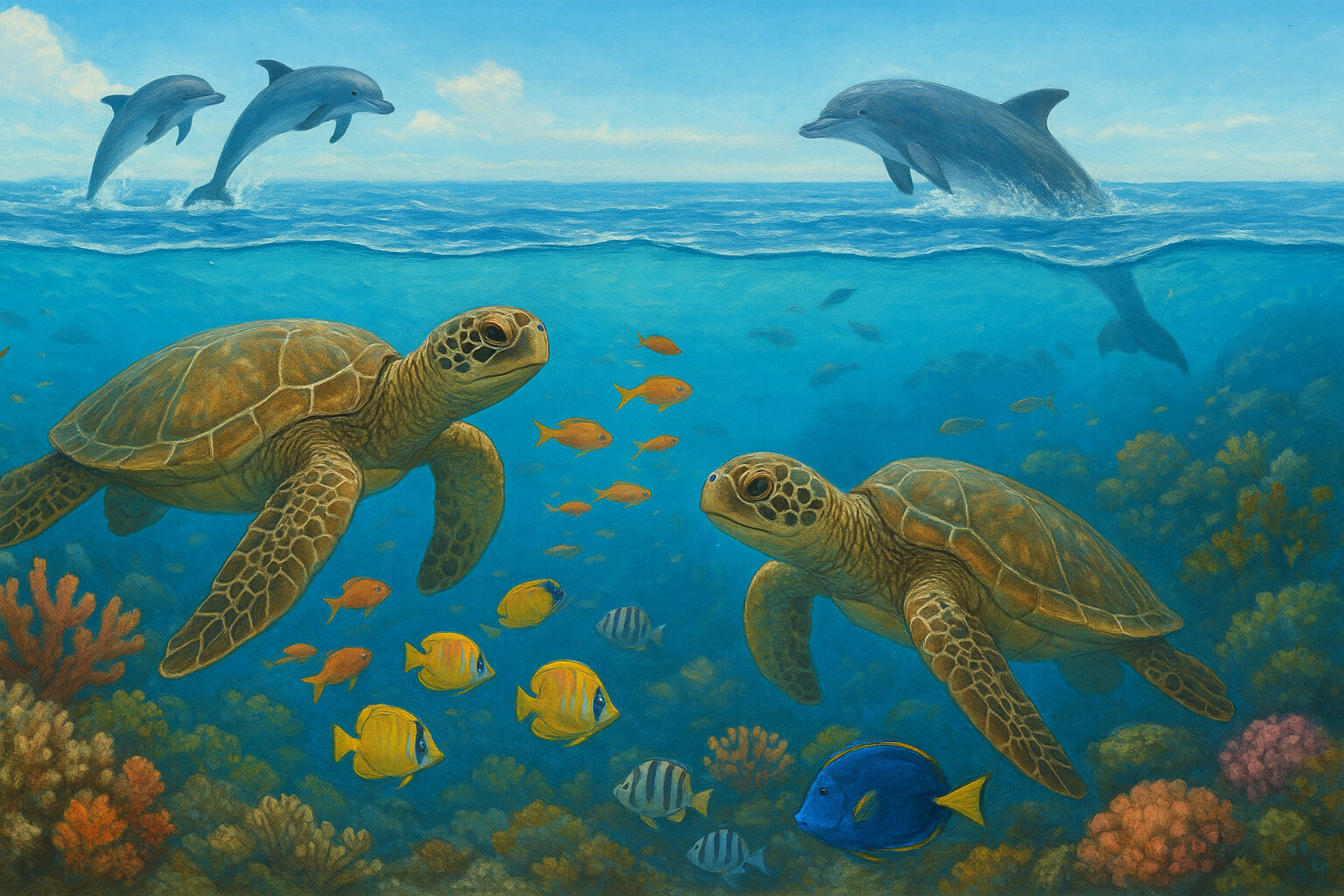Marine Life Conservation: Saving Our Oceans' Creatures

Our oceans cover more than 70% of the Earth’s surface and are home to millions of species that keep our planet’s ecosystem in balance. From the tiniest plankton to the largest whales, marine life plays a vital role in regulating climate, providing food, and supporting global livelihoods. Yet today, our oceans face unprecedented threats due to human activity.
Marine life conservation is no longer optional—it’s essential to the survival of ecosystems and future generations.
Why Marine Life Conservation Matters
Marine species are deeply intertwined with human well-being:
- Climate Regulation: Oceans absorb nearly a third of global carbon emissions, thanks largely to marine plants like phytoplankton (UNEP).
- Food Security: Over 3 billion people rely on seafood as a major source of protein (WWF).
- Livelihoods: Marine-based industries like fishing and tourism employ tens of millions globally (NOAA Fisheries).
When marine ecosystems decline, it’s not just wildlife that suffers—so do people and economies.
Major Threats to Ocean Life
1. Overfishing
- Modern industrial fishing has severely reduced populations of species like bluefin tuna, cod, and sharks. Bycatch—the accidental capture of non-target species—kills thousands of dolphins, sea turtles, and seabirds every year (WWF on Overfishing).
2. Plastic Pollution
- An estimated 14 million tons of plastic enter the ocean annually. Plastic debris is ingested by marine life, entangles sea turtles, and can even enter the human food chain through contaminated seafood (UNEP Marine Pollution).
3. Climate Change
- Rising temperatures and ocean acidification are bleaching coral reefs, threatening the survival of countless species. Entire ecosystems are being disrupted as species migrate in search of cooler waters (NOAA Climate Impact).
4. Habitat Destruction
- Destructive activities like bottom trawling, coastal development, and oil drilling destroy essential habitats like mangroves, coral reefs, and seagrass beds—all crucial for biodiversity and storm protection.
Global Efforts to Protect Marine Life
Marine Protected Areas (MPAs)
- Countries and conservation organizations are designating MPAs where fishing and damaging activities are restricted or banned, allowing marine ecosystems to recover. Over 8% of the world’s oceans are now under protection (WWF: Marine Protection).
Community-Based Conservation
- Local communities are leading efforts through sustainable fishing, eco-tourism, and marine education programs. These initiatives are often more effective than top-down approaches.
Plastic Reduction Campaigns
- Movements to ban single-use plastics and conduct large-scale beach cleanups are gaining momentum globally. The UN’s Clean Seas campaign aims to drastically reduce marine litter (UN Clean Seas).
Scientific Innovation
- Scientists are using coral gardening, satellite tracking, and aquaculture to rebuild populations and monitor ocean health. Restoration projects in the Philippines and Great Barrier Reef have shown promising results (Protecting Wildlife Habitats).
What You Can Do to Help
Everyone can be part of the solution. Here’s how you can support marine life conservation:
- Reduce plastic waste: Carry reusable bags, bottles, and avoid plastic straws.
- Support sustainable seafood: Look for certification from groups like the Marine Stewardship Council (MSC).
- Join beach cleanups: Or organize your own with local groups.
- Advocate for policy change: Call for stronger environmental protection laws in your region.
- Educate others: Share facts, stories, and resources with your network.
Signs of Hope
Despite the challenges, there are many inspiring stories of marine recovery:
- The humpback whale, once nearing extinction, has made a dramatic comeback due to international protection.
- In Apo Island, Philippines, community-run MPAs helped fish populations rebound and tourism flourish.
- Coral reef restoration efforts in Australia have shown early signs of success, giving hope for broader regeneration.
These stories prove that with collective action, change is not only possible—it’s happening.
By protecting our oceans, we’re not just saving sea creatures—we’re safeguarding the planet and our own future. Let’s act now, before the tide turns for good.
